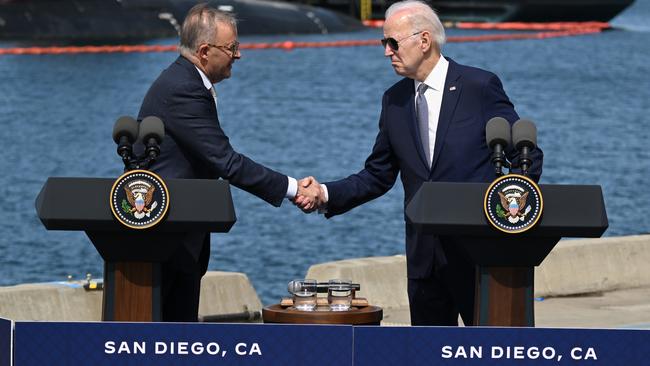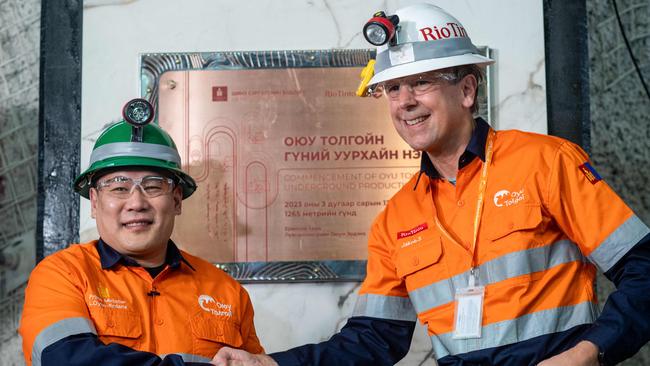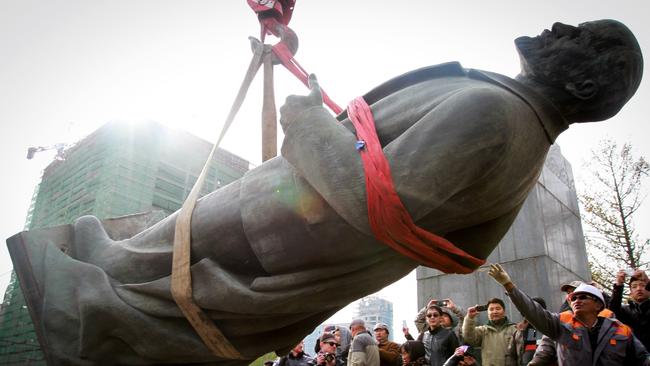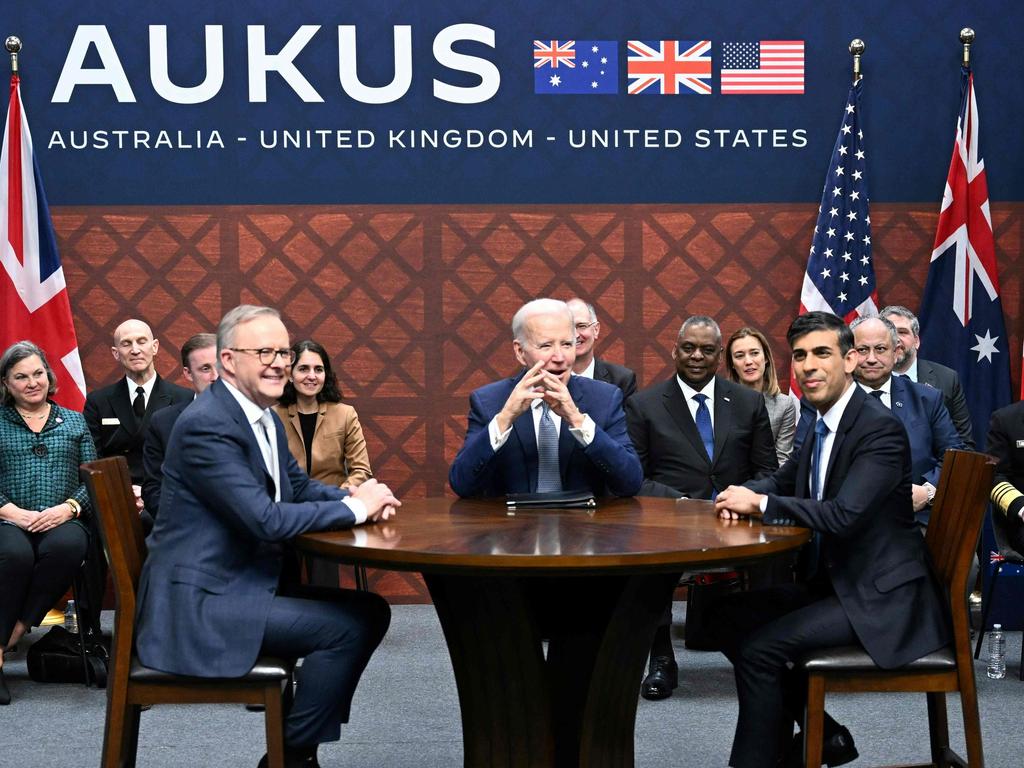Caught between big brothers: AUKUS reignites Cold War fears in Mongolia
Mongolia’s PM pleads for understanding of his country’s precarious position squeezed between two huge, authoritarian neighbours, Russia and China, both on a militarised collision course with the West.

The world is sliding towards a new Cold War and western spending on projects such as the Aukus nuclear submarine deal should instead go towards helping developing countries, the prime minister of Mongolia has said.
Luvsannamsrain Oyun-Erdene pleaded for international understanding of the precarious position of his government, a democracy squeezed between two huge and authoritarian neighbours, Russia and China, both of them on an increasingly militarised collision course with the West.
“My concern is how long it will take to go back to the normal system if we end up in a Cold War,” Oyun-Erdene said. “It took half a century after the [last] Cold War. This is a very critical moment for the whole world to resolve this issue as quickly as possible.”
He added that a new superpower confrontation would hurt small and developing countries the most.

Speaking hours after Rishi Sunak, the UK prime minister, met the leaders of the United States and Australia to agree a $368bn deal to provide Canberra with nuclear-powered submarines, the Mongolian prime minister called for western powers to adopt different priorities.
“I understand that every country wants to safeguard their national security,” he said. “I don’t say I have all the solutions … [But] I do believe that money could be spent for the benefit of ordinary people’s livelihoods and to prolong the survival of Mother Earth.”
Disgust at the Russian invasion of Ukraine and alarm at the growing assertiveness of Xi Jinping’s China are widespread in the West, but Oyun-Erdene speaks for a significant number of leaders of less powerful countries who are deeply uncomfortable about being asked to choose between the US and its allies on one side and Russia and China on the other.

Leaders from southeast Asia to Latin America are dismayed by the prospect of alienating China, whose economic importance as a trading partner is matched by its growing military power and ambition.
Few are in as extreme a position as Mongolia, a country more than six times larger in area than the UK but with a population of 3.5 million, less than that of Ireland.
“Mongolia has a unique position as it is located between two major powers and is a landlocked developing country,” said Oyun-Erdene, his country’s youngest leader. “No other country in the world is sandwiched between two major powers and has been able to develop a robust and still thriving democratic system.”
Mongolia is dependent for oil and gas imports on Russia, while China is its biggest customer by far for exported copper, coal, mineral and cashmere. Its small armed forces would be unable to fend off serious attack by either of its mighty neighbours and, isolated in the middle of the east Asian land mass, it would have no realistic prospect of the kind of military support received by Ukraine.

It has survived, nonetheless, through a policy of carefully avoiding criticism of Moscow or Beijing, while cultivating good relations with western governments and business.
Yesterday, Oyun-Erdene opened the Oyu Tolgoi mine in the Gobi desert, a partnership with the UK-Australian company Rio Tinto that will be the world’s fourth largest copper mine.
Mongolia’s keenness to avoid offending President Putin has put it in an uncomfortable situation at the United Nations, where it has abstained from votes condemning the Russian invasion of Ukraine, alongside countries such as China, Iran and India.
Oyun-Erdene said abstaining was “a challenge” but that he stood by the decision. “This is the best we can do at this moment to maintain the [diplomatic] balance,” he said.
He declined to condemn western sanctions against Russia, but said they had unintended effects on countries such as Mongolia.
After the European Union barred Russian airlines, Moscow retaliated by blocking western carriers from its own airspace, forcing flights from Asia to take an indirect route.
As a result, Mongolia loses out on “navigation fees”, a charge paid by airlines for passing over a country’s territory.
The sanctioning of Russian banks also makes it more difficult for Mongolians to pay for imported goods.
China’s closure of its borders during the now abandoned zero Covid policy also harmed trade.
“These are things that we can’t influence, but they have a direct effect on the livelihood of our citizens,” Oyun-Erdene said.
“It’s like a storm – the sea hits the rock, but the sea doesn’t change and the rocks doesn’t change. But the sea creatures are killed. The situation [for developing countries] is like a storm at sea.”
The Times







To join the conversation, please log in. Don't have an account? Register
Join the conversation, you are commenting as Logout